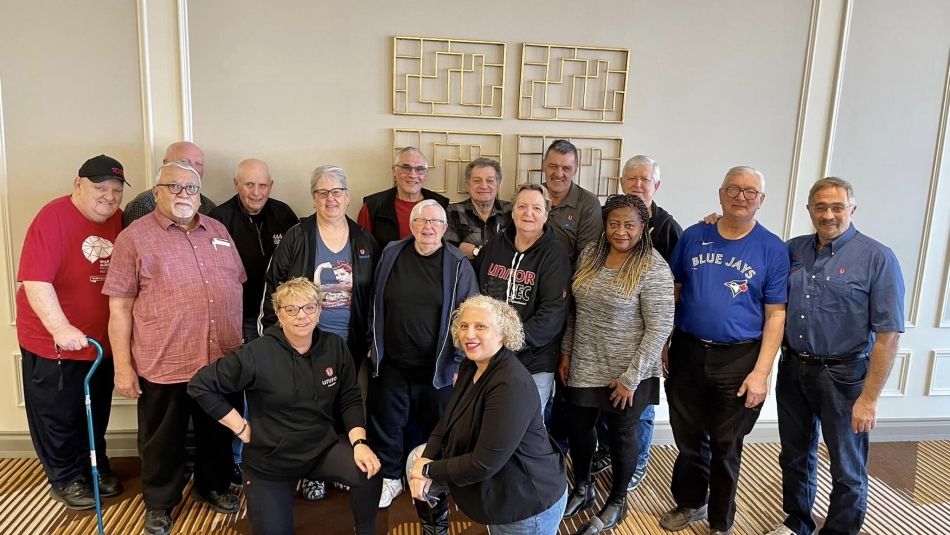
Share
The 15 members of Unifor’s Retired Workers Council Executive immersed themselves in human rights training from March 13 to 16, 2023.
The group learned and discussed topics from race, sexism, gender identity and sexual orientation to age, marital or family status to disability. It was the first time since 2017 that the council experienced human rights training and especially poignant given this December is the 75th anniversary of the United Nations Universal Declaration of Human Rights (UDHR).
“Throughout those 75 years, there has been progress, but there’s a lot more work to do,” said Unifor National President Lana Payne.
“Throughout 2023, and going forward, Unifor calls on all allies and activists to defend against every attack on equality, freedom and justice for all by engaging in activism and reconciliation, tabling demands for equity at bargaining tables, and by engaging in international solidarity. Human rights training for Unifor councils only expands our solidarity.”
Ruth Pryce, former member of Unifor’s National Executive Board and a Black, Indigenous, Workers of Colour member of the Retired Workers Council Executive, said she faced instances of racism as a Black woman, from moving up roles within Local 1106 to within the long-term health care sector, where she worked.
“My advice to others is to not be offended and to hold your ground,” she said. “It can take a toll on you when you realize that people are not really listening to you, and it’s because of your colour [of your skin],” she said.
Christine Maclin said during the human rights training, participants unpack racism, gender and sexuality, harassment and disability among other topics. They discuss ideas in breakout groups on how these retirees can make sure the campaigns they’re working on always have a human rights lens.
The focus isn’t about workplace issues, said Maclin, but rather how human rights applies to the retirees and their lives within their union roles and within society.
“Retirees are a wealth of knowledge and they’ve seen generational changes and they’re far more progressive,” she said.
“A lot of people use that stereotype that ‘older people don’t get it.’ These retiree executives have got it. They’ve put equity spots on their executive board – so for the first time, they have a Black, Indigenous and Worker of Colour and another equity spot for an 2SLGBTQIA+ representative.”
Barb Dolan, Director of the Retired Workers Department for Unifor, said the previous council executive underwent these training sessions six years ago, but with new members and positions added to the council, it was time for some fresh discussions.
Maclin said to be teaching this training in the year where the UDHR turns 75 is powerful. She said the world has come a long way with human rights, but there’s still a long road ahead.
“Specifically, we often talk about human rights as young, working-class people, but we often forget there are a lot of human rights violations impacting older populations who are being exploited,” said Maclin.
One harmful issue that has already come up an elder person from the 2SLGBTQIA+ community can be out when they’re younger, but when they go into long-term care homes, they feel pushed back into the closet.
“I’ll be 73 years old next year and if I end up in a long-term care home, I’ve just lost my community,” said Stephanie Johnstone, 2SLGBTQIA+ member-at-large on the Retired Workers Council Executive.
“To me, it’s about having a place for 2SLGBTQIA+ within nursing homes. In those spaces, are you still as free to talk about your relationship as in-depth as before? It’s a pretty lonely existence when you’ve lost all your community.”
See photos of Facebook album.
To get connected with a retirees chapter in your region, or for help starting one, contact Barb Dolan at @email.


